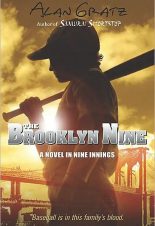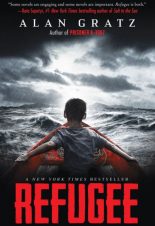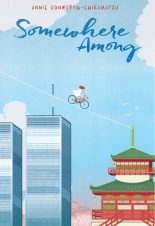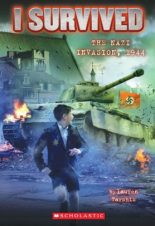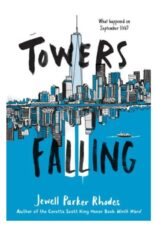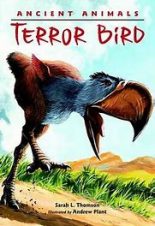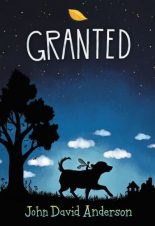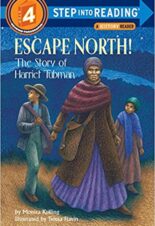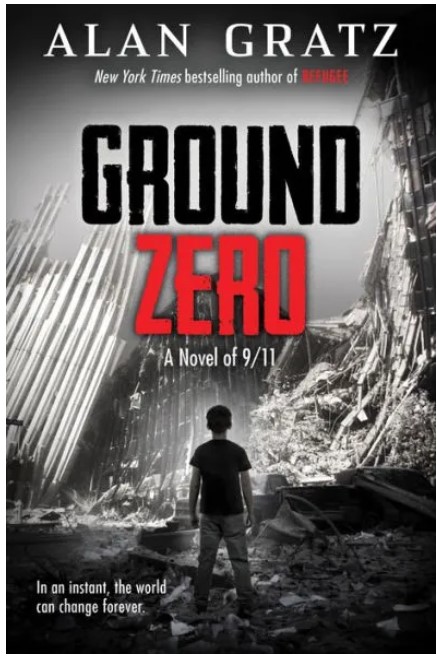
Buy This Book
“Brandon wished he was with his father, even if the floors were buckling and the fire was spreading and they couldn’t breathe. Even if his dad was dying. Brandon would rather die with his dad than live alone.” –Ground Zero
Ground Zero
by Alan Gratz
AR Test
9+
Score
4.8
336
September 11, 2001, New York City: Brandon is visiting his dad at work, on the 107th floor of the World Trade Center. Out of nowhere, an airplane slams into the tower, creating a fiery nightmare of terror and confusion. And Brandon is in the middle of it all. Can he survive — and escape?
September 11, 2019, Afghanistan: Reshmina has grown up in the shadow of war, but she dreams of peace and progress. When a battle erupts in her village, Reshmina stumbles upon a wounded American soldier named Taz. Should she help Taz — and put herself and her family in mortal danger?
Two kids. One devastating day. Nothing will ever be the same.
Ground Zero focuses on Brandon and Reshmina’s perspectives. Although the protagonists’ time periods are different, the chapters switch perspectives every other chapter. This makes both characters’ conflicts feel immediate and allows readers to see the parallels between Brandon and Reshmina’s stories. Even though both protagonists are young, they are forced into life-and-death situations that show the evils of terrorism. In addition, both Brandon and Reshmina lose an innocent family member who is killed due to no fault of their own.
Brandon’s and Reshmina’s stories explore the complicated relations between Afghanistan and America. Neither of the protagonists understands why the violence is happening to them. All they know is that violence has caused death and destruction for those around them. One issue that is briefly discussed is how “big countries made money selling weapons to little countries [Afghanistan]. Who they killed with those weapons wasn’t any of the big countries’ concerns.” In the end, Ground Zero leaves the reader wondering if the United States has become a “bully” to Afghanistan.
Readers will feel compassion for Reshmina and come away with a new understanding of how the Taliban treats girls. Even though Reshmina lives in a village where girls have few rights, she still dreams of becoming an interpreter. This dream propels her to study hard and gives her hope for the future. When Reshmina sees a wounded American soldier, she is reluctant to help. But when the soldier asks for assistance, Reshmina takes him home, and her family agrees to give him refuge. This causes a myriad of problems for Reshmina’s family and village. Afterward, Reshmina wonders if helping the soldier is the right thing to do. This experience helps her realize that “Moving forward was scary. Sometimes you make mistakes. Sometimes you take the wrong path. And sometimes, even when you take the right path, things could go wrong. But Reshmina realized that she wanted—needed—to keep moving forward, no matter what.”
Ground Zero helps readers understand the events of 9/11 and the lasting impact 9/11 had on Afghanistan. While both Brandon’s and Reshmina’s stories are compelling, Reshmina’s side of the story makes readers question the nature of war. Both protagonists describe violence, and some of the descriptions are graphic and disturbing. After reading Ground Zero, readers will be able to visualize what happened in the Twin Towers after the planes crashed into them as well as the destruction of Reshmina’s village. Since Ground Zero explores how 9/11 changed America and Afghanistan, younger readers may have difficulty processing the difficult topic.
Mature readers will find Ground Zero compelling and thought-provoking. However, readers who are interested in learning more about 9/11 without the graphic images may want to read Towers Falling by Jewell Parker Rhodes, Molly and the Twin Towers: A 9/11 Survival Story by Jessika Fleck or I Survived the Attacks of September 11, 2001 by Lauren Tarshis.
Sexual Content
- None
Violence
- Because the story focuses on the terror attacks and a war, not all of the book’s violence is described below.
- A boy at school brought “these Wolverine gloves to school, like from the X-Men movie. And Stuart Pendleton stole them and wouldn’t give them back!” Brandon hits Stuart Pendleton in the nose. Brandon said, “Once I saw his nose was bleeding, I helped him up and took him to the nurse’s office.”
World Trade Center, 2001
- A group of people are stuck on an elevator that keeps sliding down the shaft. A woman decides to run through a fire to get out of the elevator. “The woman burst into flames. She screamed and beat at her burning hair as she collapsed to the floor. . .” The woman rolled, and a man “beat the last of the flames with the wet shirt he carried.” The woman’s “hair was gone, and her hands and arms were burned. Badly. . . The burned woman wept. Blisters were forming all over her body.” The scene is described over two pages.
- After the woman gets out of the elevator, it falls. “The four people in it were surely dead.”
- Brandon watches as an airplane flies into the South Tower. “Suddenly a bright orange fireball erupted from the side of the South Tower facing them.” This is when people began to realize that it wasn’t an accident, that instead the planes had purposely flown into the towers.
- Several times, Brandon mentions people falling to their death. As Brandon is leaving the tower, “Out on the plaza between the North Tower and the South Tower were bodies. And parts of bodies. Broken, bloody things too awful to think about. . . A piece of metal crashed into the plaza—SHANG!—and Brandon flinched. The big beam was immediately followed by something white and blue and brown plummeting down from above, and it hit the ground with a sickening THUMP!”
- In the lobby of the tower, Brandon saw “dozens, hundreds of bodies were lined up in rows across the floor. Some of them were missing limbs. Others had open wounds. Paramedics moved the burned, broken, and dying people, doing what they could.”
- When the tower falls, “with a roar like a garbage truck, a blast of smoke and dust lifted Brandon off his feet and hurled him into darkness.”
- When Brandon gets out of the tower, he sees people falling from the North Tower. “People were still jumping from the tower, falling ninety floors to their deaths. They dropped out of the thick black smoke that engulfed the top of the building with alarming speed, arms and legs flailing. Brandon saw one man reaching, grabbing as he fell, too far from anything to stop himself, his tie sticking straight up in the air above him.”
Afghanistan, 2019
- When the Taliban ruled Afghanistan, “the Taliban beat men for not growing beards, massacred families, burned down schools, and put on public executions in the soccer stadium in Afghanistan’s capital, Kabul. . . [they] beat women who left their houses without a male family member, and sold girls into slavery.”
- Reshmina’s sister, who was only 16, is killed on her wedding day by an American drone. Reshmina watched as “something small and black detached from the drone and streaked out toward the front of the parade. Toward her sister in her beautiful wedding dress, surrounded by all her friends. Reshmina remembered the whoosh of the missile, the gray trail of smoke behind it and then—”
- The Taliban lures the American army into Reshmina’s village. When the army attacks, Reshmina runs home. “THOOM. The ground rocked from a nearby explosion, and dirt rained down from the ceiling. . . Gunfire erupted close enough nearby to rattle the dishes, and Reshmina and Marizia huddled together against the wall. . . The shooting and explosions didn’t seem to bother the baby. He was already used to it.”
- Reshmina gets into an argument with her mother. Afterward, Reshmina’s grandmother explains: “When your mother was six, her father was killed by a missile while he was praying in his backyard. When she was your age, her older brother was killed by the Taliban for no reason that has ever been explained to her. Her husband—your father and my son—had his leg mangled by an old Soviet mine right after they were married. . . . Hila was killed by an American bomb.”
- After a battle between the Taliban and the Americans, Reshmina finds an injured American soldier. “His face was charred like a scorched pot, and there were dark, wet spots on his uniform. Blood, Reshmina realized. . .”
- When Reshmina’s brother decides to join the Taliban, she follows him in order to stop him. While they are arguing, a helicopter appears. “A rocket streaked from one of the Apache’s wings straight toward the ridge where the Taliban had been standing moments before, and F-THOOM!—the hillside exploded. Boulders broke loose from the mountain and tumbled down toward Reshmina.”
- The Taliban shoots at the helicopter. “The helicopter descended, getting closer and closer, and the sound of bullets hitting the hillside got louder and louder. . .” The attack is described over seven pages. It is unclear if anyone died.
- Reshmina tries to physically stop her brother, Pasoon, from leaving to join the Taliban. “Pasoon hit her hard on the side of her face with his open palm. The blow was so sudden, so brutal, it sent Reshmina to her hands and knees. Rocks cut into her palm. . . Reshmina tasted blood where she’d bitten her own tongue, and her face burned. . .” Pasoon leaves.
- The Taliban and Americans battle in Reshmina’s village. “An assault rifle barked, and another fired back. The villagers screamed. . . Taliban bullets struck the guard, and he fell to the ground, dead. . . Huge blasts rocked the village above them, and three more houses exploded in clouds of rock and splinter.” The villagers hide in a cave while their homes are completely destroyed. The battle is described over six pages.
- The Taliban dropped a bomb on the cave and “the whole ceiling fell in . . . Reshmina explored the rockfall, looking for a way through. She stopped when she saw the legs of some poor soul sticking out from under a boulder, the rest of the woman’s body crushed in the cave-in.” Later, Reshmina learns that “a few died,” but most of the village survived the cave-in.
Drugs and Alcohol
- Reshmina discovers a field of Poppies. “People didn’t grow poppies for their pretty pink colors. Poopy seeds had a gummy substance that was the raw material for heroin. . . For many Afghans hurt by decades of war, it was the only kind of medicine they could find to erase the suffering—and their awful memories.”
Language
- When the elevator swings back and forth, a man says, “What the hell—.”
- When Brandon is trying to find his father, his path is blocked by debris. Brandon repeats “crap” six times. Later, a man says, “Holy crap.”
- Oh my God and Good God are used as exclamations several times.
- Jesus, damn, and dang are all used once.
- Reshmina calls her brother a snake, an idiot, a cowardly worm, stupid, and son of a donkey.
- An American soldier has a tattoo that says, “Damn the Valley.” He explains, “This valley [where Reshmina lives]—it kills our friends and ruins our lives.”
- An American soldier says, “Dadgum.”
Supernatural
- None
Spiritual Content
- While leaving the Twin Towers, a woman says, “God bless you,” to a firefighter.
- When the Taliban and Americans fight near Reshmina’s village, Reshmina prays, “Dear God, please keep Baba and Pasoon safe out there.”
- When Reshmina finds an injured American soldier, she thinks about leaving him to die. But when the soldier “specifically asked her for help,” Reshmina is conflicted. “Just as Pashtunwali gave her the right for revenge, it also said that when a person asked for help or protection, no Pashtun could refuse—no matter who was asking, friend or foe.” Pashtunwali is the tribal code of the Pushtan people from Afghanistan, which Reshmina follows. Reshmina allows the soldier to follow her home.
- A textbook from Reshmina’s school said: “J is for Jihad. Jihad is the kind of war that Muslims fight in the name of God to free Muslims and Muslim lands from the enemies of Islam.”
- While hiding from a battle, Reshmina and her brother hide with a group of Nomads called the Kochi. When the Kochi pray, “Reshmina and her brother felt obligated to join them. . . God was forgiving and merciful and would still accept their prayers if He willed it. Better to pray than to not pray, their father always told them.”
- As Reshmina prays, she asks, “Please help turn my brother’s heart from revenge. Please show him another path.”
- Reshmina asks God for a du’a. “A special request in a time of need. . . God promised to answer a du’a in one of three ways. The first. . . was when God gave you what you asked for. . .The second was to give you what you prayed for, but at some later date. The third was to not give you what you asked for at all, but instead to prevent some other hardship or injury from happening to you.”
- After several villagers die, Reshmina’s father says, “To God we belong, and to God we return.”
“Brandon wished he was with his father, even if the floors were buckling and the fire was spreading and they couldn’t breathe. Even if his dad was dying. Brandon would rather die with his dad than live alone.” –Ground Zero
Latest Reviews

Pride: A Pride & Prejudice Remix
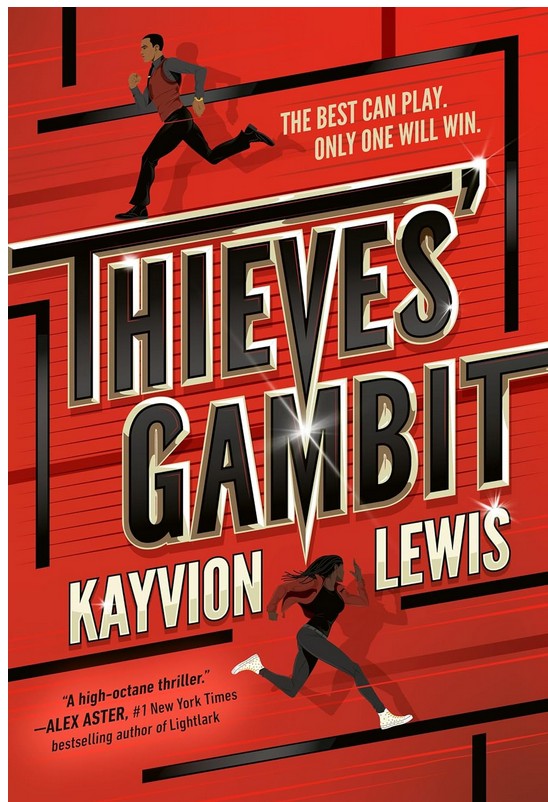
Thieves’ Gambit #1

Dreamology
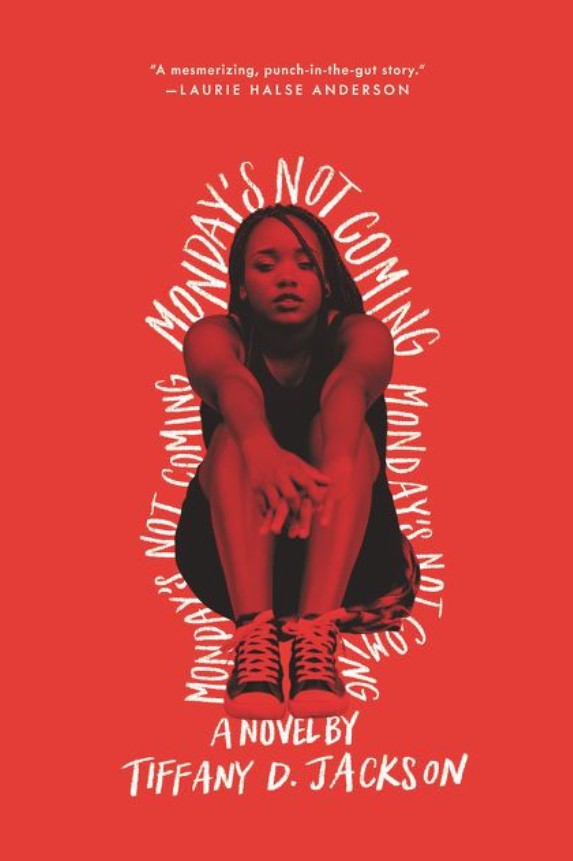
Monday’s Not Coming
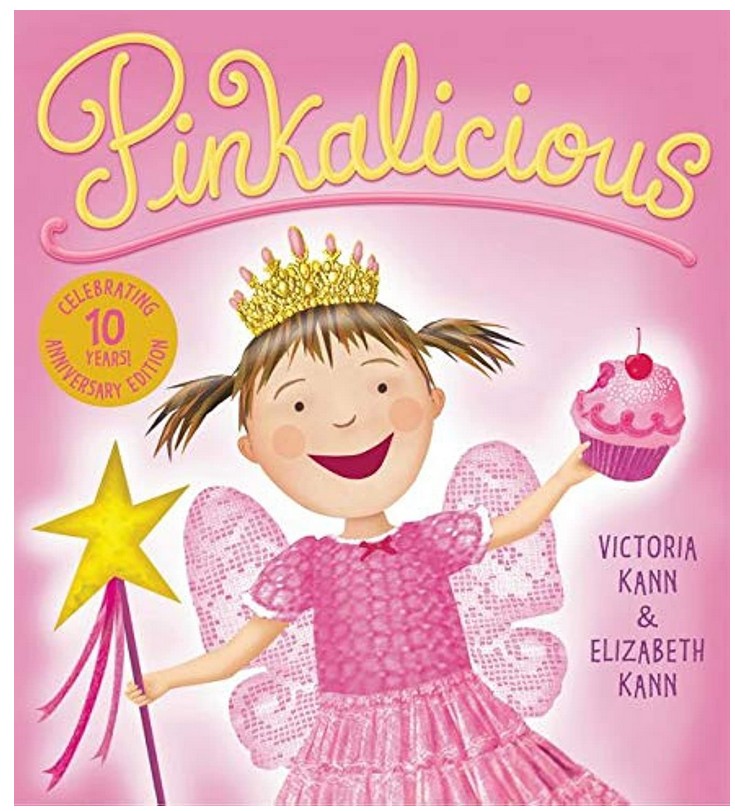
Pinkalicious

Driven

Goodbye Days

Blood of Troy

Will’s Race for Home

